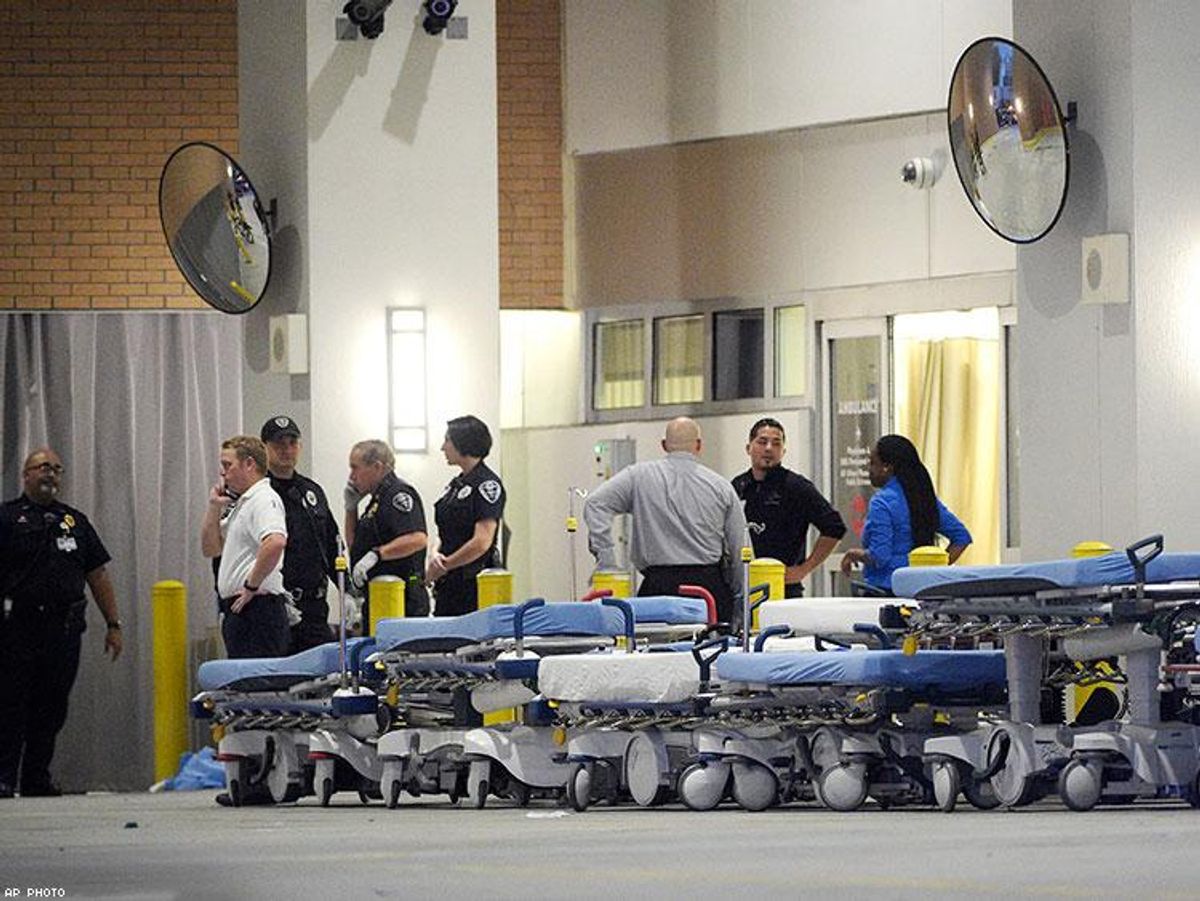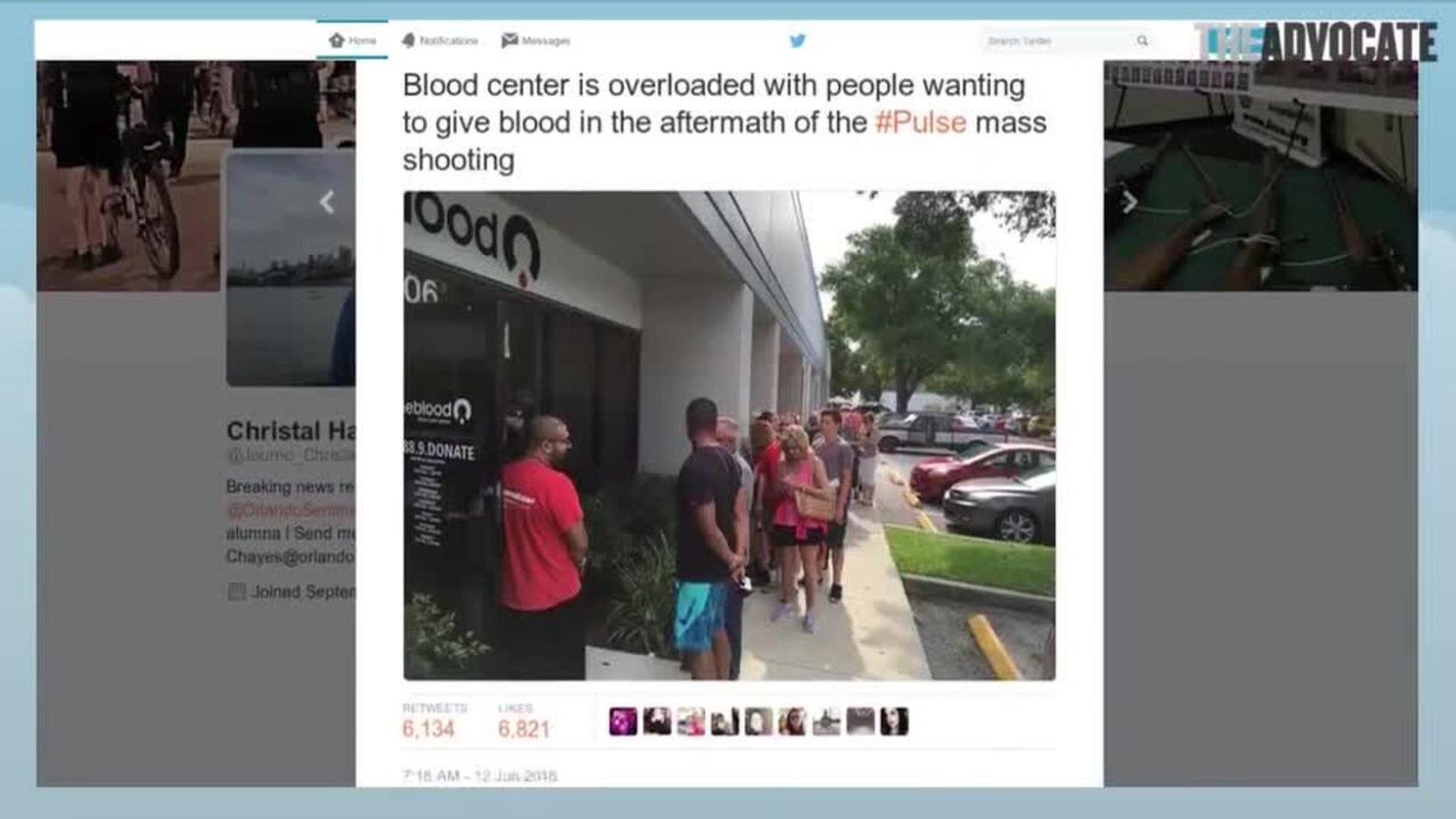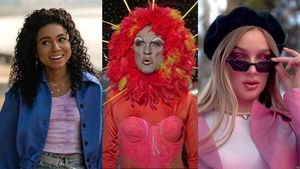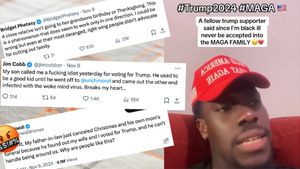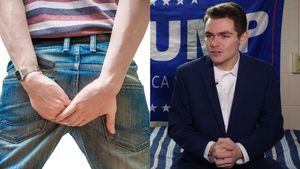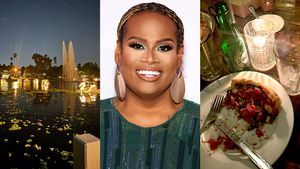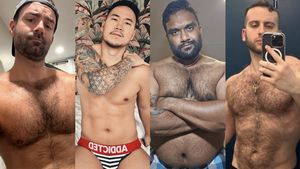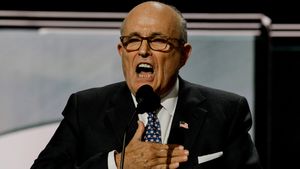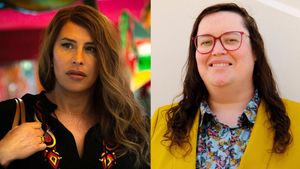Emergency personnel wait with stretchers at the emergency entrance to Orlando Regional Medical Center after the fatal mass shooting at gay nightclub Pulse Orlando (AP Photo/Phelan M. Ebenhack)
At least 50 people are dead after what police have called a potential terrorist attack at Orlando, Fla.'s largest gay nightclub in the early hours of Sunday morning in what out gun safety advocate Mark Glaze called the largest mass shooting in U.S. history. Another 53 people were shot when a gunman, who was later killed, opened fire in the club. They've been rushed to Orlando Regional Medical center and local officials have called for desperately-needed blood donations from the community. Long lines outside some donation centers prove the spirt of Orlando residents in the wake of tragedy.
It's also called for a historic change. In response to the desperate need for donor blood for the victims, Orlando City Commissioner Patty Sheehan, an out lesbian, told reporters she has called for a reversal of the Food and Drug Administration's blood ban, which refuses donations from men who've had sex with another man within the last year.
A spokeswoman at the Orlando Regional Medical Center, which is the level one trauma center that many of the shooting victims have been sent to, said she could only confirm that the hospital is indeed taking all blood donations at this point (even those from gay and bi men) and blood screening measures are in place.
(Editor's note: We're still waiting to hear how long this reversal is in effect, if it only impacts Orlando, and the Food and Drug Administration's response to Sheehan's call after decades of not allowing blood or tissue donations by gay and bi men.)
The reversal caught gay activists off guard. As soon as the call went out for donors, may LGBT activists began decrying the FDA's historic ban. Currently only gay and bisexual men who have been abstinent a year are allowed to donate blood.
Titan Men adult film director Jasun Mark posted on Facebook, "I'd say 'don't bother praying, that does nothing; give blood instead,' but since we're gay, they won't take our blood." New York City nightlife impresario Bobby LaSalle, who once worked at Pulse Club that was attacked, and is a Florida native, said: "It's worth noting that they're asking for immediate emergency blood donations in Orlando right now, ostensibly to help our queer brothers and sisters -- and just how many of us would be allowed to donate?"
According to Sheehan and her aides, LaSalle and his gay friends can donate now in Florida. Indeed, local trauma centers and blood banks appear to be taking donations from gay and bi me and transgender women (another group banned, along with sex workers and injection drug users). But the lines are long to donate, so some wonder if the need is still there.
"We've been to three bloodbanks, we are on our way to a third one because the lines were pouring out the door," says Sarah Tedrow-Azizi, who is in Orlando trying to donate blood with her partner David Francus. "Most of the places are closed on Sunday but they are either closed until 1 or 2 pm. Valenica College closed -- we went to one on Michigan, and the main one in Downtown Orlando [where] people are parked in the grass alongside the road. It looks like a concert festival."
Tedrow-Azizi said that the third center they went to to donate blood had an estimated waiting time of eight hours. They're still trying to find a spot to donate sooner, and are now on the road to a donation center in Apopka, spurred by the weight of the tragedy.
"When I was reading the numbers, I kept thinking it was a mistake" she says. "It's just really sad."
Right now, according the FDA website the organization has "changed its recommendation from the indefinite deferral for MSM to a 12 month blood donor deferral since last MSM contact. For other behavioral deferrals such as commercial sex workers and injection drug use, insufficient data are available to support a change to the existing deferral recommendations at this time."
However infuriating, there is a reason for this from a clinical standpoint, says Mary Ann Chiasson, a staunch LGBT ally and vice president of research and evaluation at New York's Public Health Solutions. "There is much higher risk for men who have sex with men -- 63 percent of newly diagnosed infections are in MSM."
Additional reporting by Elizabeth Daley.
